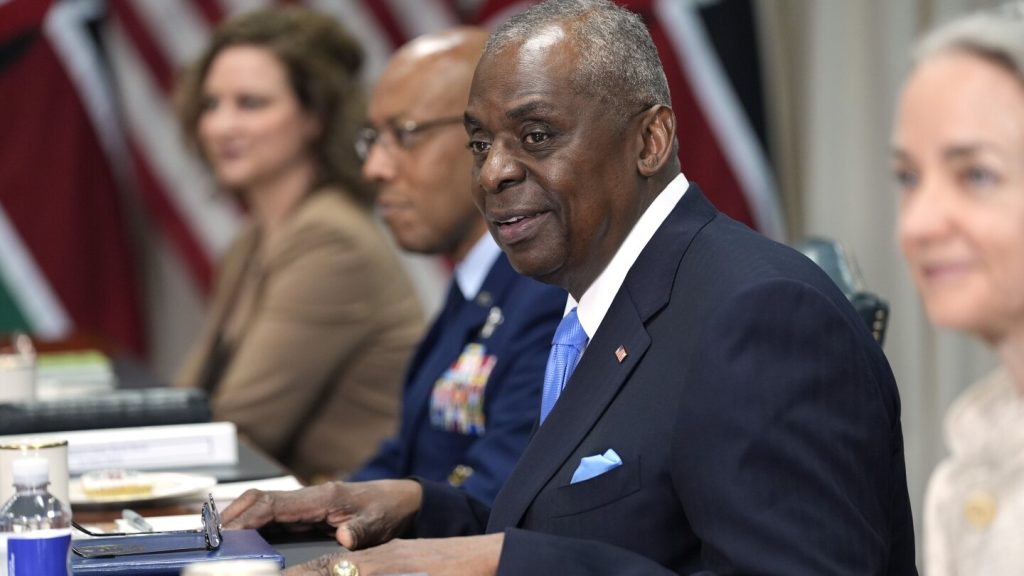Austin’s health issues began in December after his treatment for prostate cancer, resulting in bladder complications that have required ongoing medical attention. The upcoming medical procedure he will undergo at Walter Reed National Military Medical Center on Friday evening is described as elective and minimally invasive. According to Pentagon press secretary Maj. Gen. Pat Ryder, the procedure is not related to Austin’s cancer diagnosis and has no impact on his favorable prognosis. In light of his temporary incapacitation, Deputy Secretary of Defense Kathleen Hicks will assume authority in Austin’s absence. This is not the first time Austin has faced health challenges since his prostate cancer diagnosis, as he previously spent two weeks in the hospital due to complications from a prostatectomy. Despite criticism for initially failing to disclose his health issues to the president and Congress, Austin’s medical team continues to keep relevant parties informed of his condition.
Following his hospitalization in February for a bladder issue, Austin was admitted to intensive care for a second time and underwent a non-surgical procedure under general anesthesia. The Pentagon has since taken steps to inform the White House and Congress of Austin’s upcoming medical procedure and temporary transfer of power. At 70 years old, Austin’s health concerns have raised questions about his ability to effectively carry out his duties as Defense Secretary. However, his medical team remains optimistic about his prognosis and the successful management of his health issues. Despite the challenges he has faced, Austin continues to work diligently in his role and uphold his responsibilities to the best of his ability.
The decision to undergo a medical procedure at this time underscores the importance of Austin’s health and well-being, as well as the necessity of addressing any medical issues promptly. The temporary transfer of power to Deputy Secretary of Defense Kathleen Hicks ensures continuity and stability within the Department of Defense during Austin’s absence. While Austin’s ongoing health challenges have raised concerns about his ability to fulfill his duties, his leadership and dedication to his role have not been called into question. As Austin navigates this latest health setback, his team and colleagues offer their support and well wishes for a successful procedure and swift recovery.
The Pentagon’s transparency in notifying the White House and Congress of Austin’s medical procedure demonstrates a commitment to accountability and communication regarding the Defense Secretary’s health. Despite initial criticism for the handling of his health disclosures, Austin and his team have taken steps to keep relevant parties informed of his condition and treatment plan. The upcoming procedure at Walter Reed National Military Medical Center is a proactive measure to address Austin’s ongoing health issues and ensure that he receives the necessary care and treatment. Throughout this process, Austin remains focused on his recovery and his eventual return to his duties as Defense Secretary.
As Deputy Secretary of Defense Kathleen Hicks assumes temporary authority in Austin’s absence, the continuity of leadership within the Department of Defense is maintained. Hicks’ experience and expertise make her a suitable candidate to oversee operations while Austin undergoes medical treatment. The Pentagon’s decision to delegate authority to Hicks reflects a commitment to ensuring that the department’s mission and responsibilities are carried out effectively in Austin’s absence. As Austin focuses on his health and recovery, the Pentagon remains focused on its mission to protect and defend the United States and its interests. The temporary transfer of power to Hicks ensures that the department’s operations continue without interruption during this challenging time.


